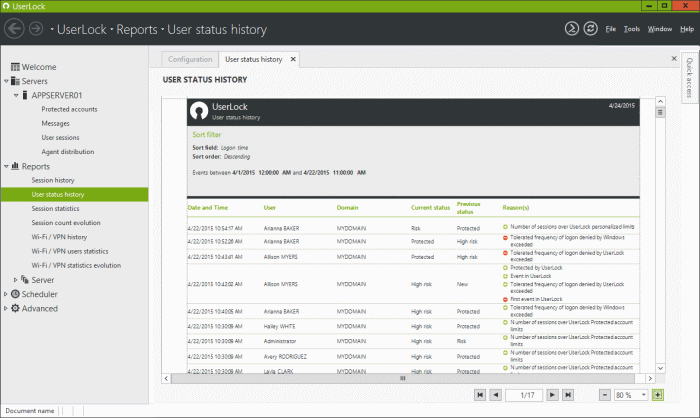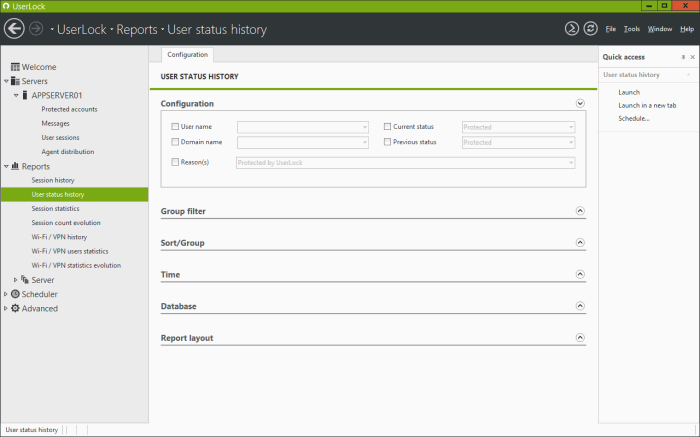User status history
All changes of the risk indicator 'User status' are audited and saved in the UserLock database. This report type retrieves its data from this UserLock database and is designed to display, export and print a historical view of all user status changes.

'Configuration' section
- User name: Allows you to display only user status changes of the selected user.
- Domain name: Allows you to display only user status changes of the selected domain.
- Current status: Allows you to display only user status changes of users currently having the same status as selected.
- Previous status: Allows you to display only user status changes of users previously having the same status as selected.
- Reason(s): Allows you to display only user status changes whose reasons are selected.

'Group filter' section
For more information about the Group filters, please read the Common Report Filters page.
'Sort/Group' section
Enable this section to group displayed data on the report and its associated sort order.
-
Available groups are:
- User: The name of the user owning the session.
- Domain: The name of the domain the user owning the session is from.
- Computer: The name of the machine on which the session is open.
- Client: The name of the client from which the session is open.
- Client external IP: The external IP address from which the session is open. -
The sort order 'Ascending' or 'Descending' can be applied on:
- 'Logon time'.
- 'Logoff time'.

'Time' section
For more information about the Time filters, please read the Common Report Filters page.
'Database' section
For more information about the Database filters, please read the Common Report Filters page.
'Report layout' section
For more information about the Layout filters, please read the Common Report Filters page.
Print and export
From the result preview you can decide to print the report or export it to a different format type using actions available in the 'Quick access' panel or the context menu.